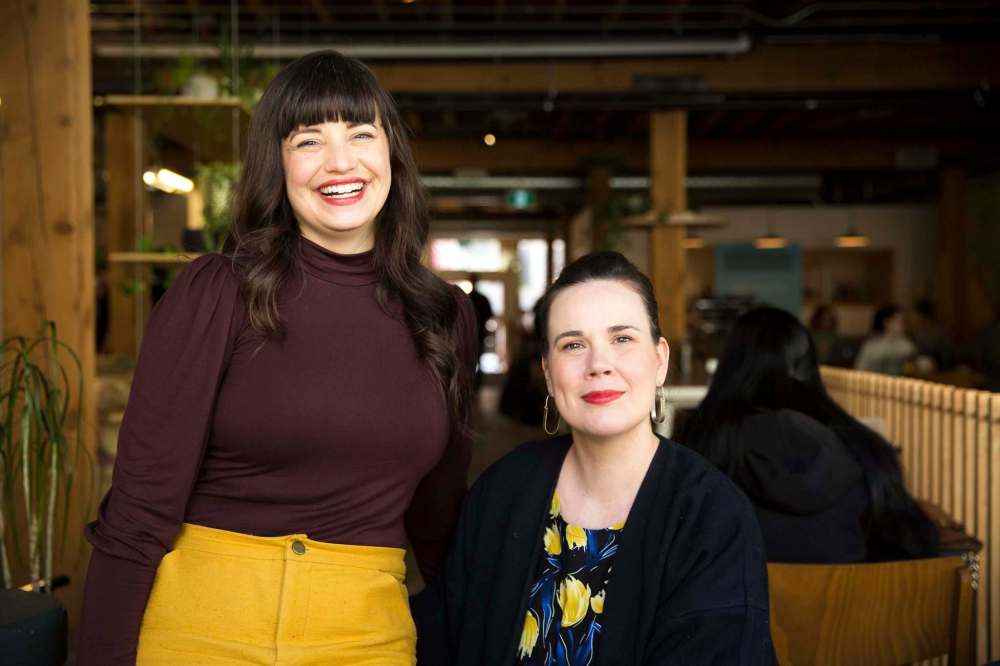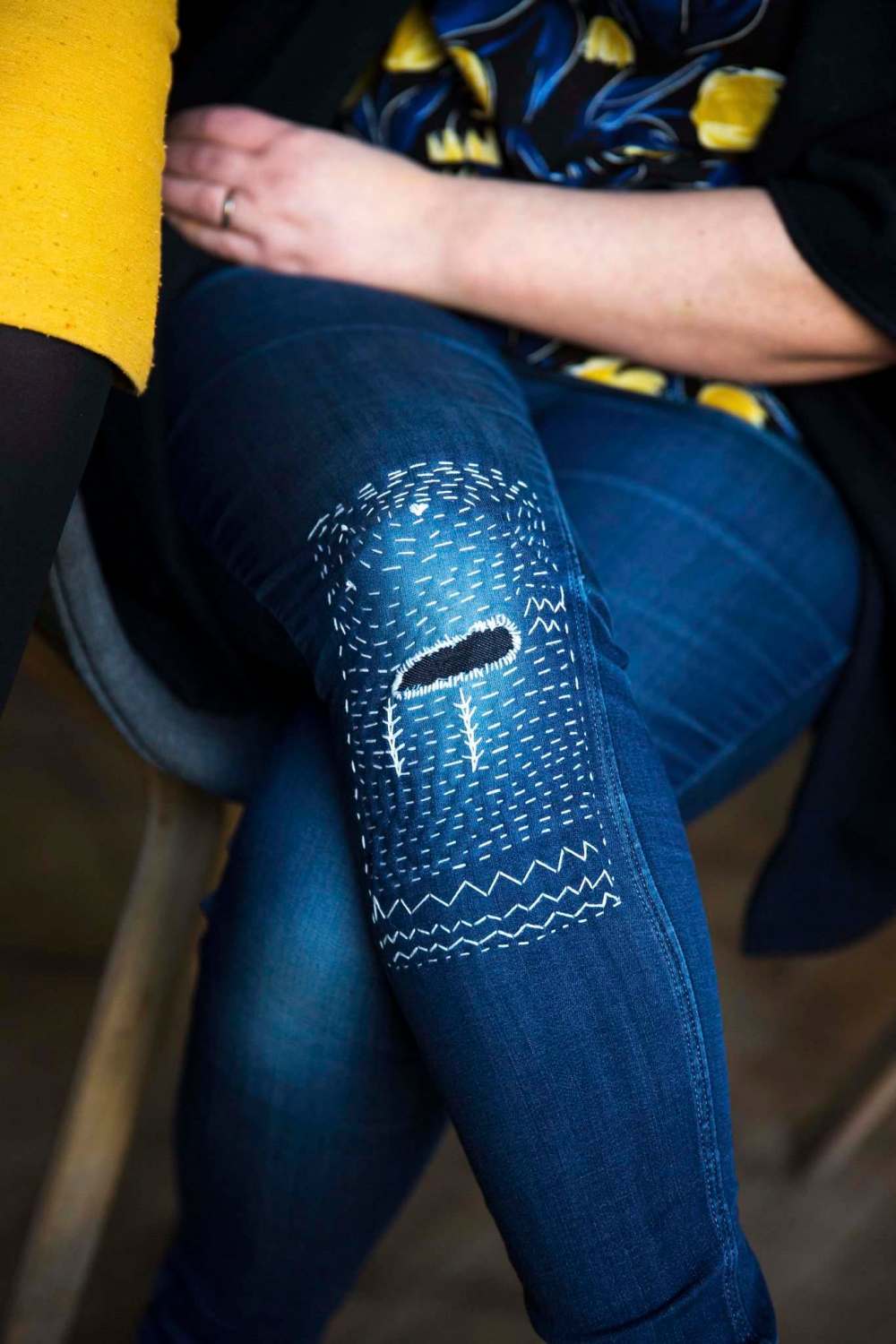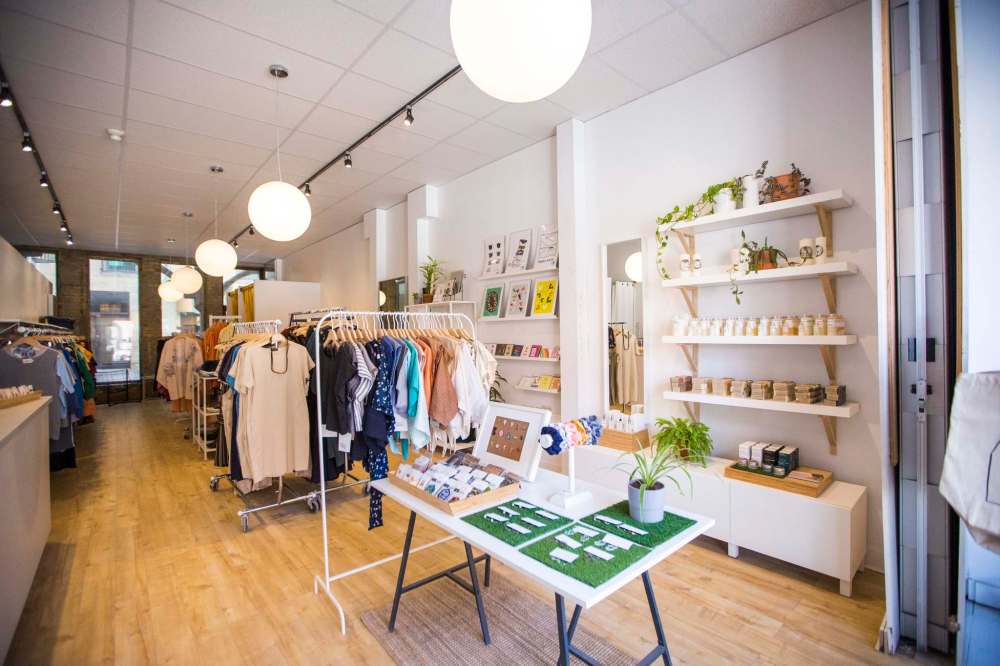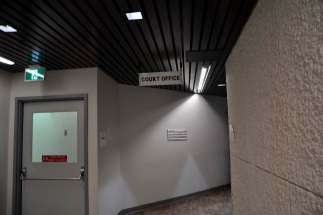Shifting fashion into a slower gear Fashion Revolution Week targets fast fashion trends that often wind up in the trash
Read this article for free:
or
Already have an account? Log in here »
To continue reading, please subscribe:
Monthly Digital Subscription
$0 for the first 4 weeks*
- Enjoy unlimited reading on winnipegfreepress.com
- Read the E-Edition, our digital replica newspaper
- Access News Break, our award-winning app
- Play interactive puzzles
*No charge for 4 weeks then price increases to the regular rate of $19.00 plus GST every four weeks. Offer available to new and qualified returning subscribers only. Cancel any time.
Monthly Digital Subscription
$4.75/week*
- Enjoy unlimited reading on winnipegfreepress.com
- Read the E-Edition, our digital replica newspaper
- Access News Break, our award-winning app
- Play interactive puzzles
*Billed as $19 plus GST every four weeks. Cancel any time.
To continue reading, please subscribe:
Add Free Press access to your Brandon Sun subscription for only an additional
$1 for the first 4 weeks*
*Your next subscription payment will increase by $1.00 and you will be charged $16.99 plus GST for four weeks. After four weeks, your payment will increase to $23.99 plus GST every four weeks.
Read unlimited articles for free today:
or
Already have an account? Log in here »
Hey there, time traveller!
This article was published 18/04/2019 (2426 days ago), so information in it may no longer be current.
A pair of Winnipeggers are doing their part to slow down fast fashion.
Katherine Magne and Elise Epp are the organizers of Winnipeg’s Fashion Revolution Week, which is part of a movement observed from April 22 to 28 via events all over the world. It’s the annual April campaign by Fashion Revolution, a global organization and movement advocating for more transparent, ethical and sustainable fashion industry.
Fashion Revolution was founded in response to the Rana Plaza factory collapse in Dhaka, Bangladesh, which killed 1,134 people and injured thousands more on April 24, 2013. The tragedy sounded a global alarm on the high human and environmental cost of so-called fast fashion — the cheap, trendy clothing produced on the quick by mass-market retailers that eventually fills up our landfills.

Of course, there are many practical reasons people support fast-fashion retailers such as H&M and Zara, for two examples. They are accessible in terms of both price point and ubiquity, allowing people to participate in trends without breaking the bank.
But many people buy a $10 top without thinking about who made it, where it came from, and why — and how — that top is only $10.
Fashion Revolution wants to get people thinking about the entire supply chain. With that in mind, the organization offers resources on its website, such as a transparency index, allowing users to learn how their most-frequented retailers measure up.
“It’s not that you have to stop buying clothes,” Magne says. “We’re just trying to change the rationale and behaviour behind the what, why, and when you buy clothes.”
Fashion Revolution Week events
• April 22: Make/Mend-In
• April 24: The True Cost screening and gala
• April 26: Fashion show and clothing swap (VIP Night)
• April 27: Clothing swap
• April 22: Make/Mend-In, Outlet Mall, 5 to 9 p.m.
“We’ll be a diverse group of knitters, crocheters, sewists and mending specialists that will provide another perspective about clothing. Our goal is to create an interactive way for shoppers to become aware of Fashion Revolution Week while encouraging education and questions about fast fashion brands,” says organizer Katherine Magne. Admission is free.
• April 24: The True Cost screening and gala, Park Theatre, 6:30 p.m.
“We’ll have a red carpet, snacks from Chew, a selfie station for guests to call in their favourite brand and ask #whomademyclothes, and then the documentary starts at 7:30 p.m. We ran an initial sold-out screening in November with a panel afterwards to great feedback and we’re hoping to reach more people this time.”
Tickets are $30 at Eventbrite.com or $35 at the door.
• April 26: Fashion Revolution Fashion show and clothing swap (VIP Night): The Forks, next to Coal & Canary, 7 p.m.
“This night is all about making thrifting feel luxurious. Extending the life of a piece of clothing is the most sustainable thing we can do for our closets.”
Tickets are $30 at Eventbrite.com or at Thrive Thrift Shop, 555 Spence St., or the door.
• April 27: Fashion Revolution clothing swap: The Forks, 10 a.m.-3 p.m.
“This will be run by Thrive Thrifting and will be general admission for anyone. We’ll be breaking down barriers to accessing good clothes at a great price, that just happen to be second-hand.”
Tickets are $20 at Eventbrite.com or at Thrive Thrift Shop, 555 Spence St., or at the door.
If you want to participate in the swap, bring clean clothes as well as bags to fill. You can still participate even if you have nothing to bring.
A suite of events to help consumers do just that is planned for Fashion Revolution Winnipeg, which starts Monday.
They include a making and mending workshop, a screening of the 2015 documentary The True Cost, as well as a fashion show and two-day clothing swap presented by Thrive Thrift Shop, at 555 Spence St. Bonus social good/ethical consumption factor: Thrive Thrift Shop is the social enterprise of Thrive Community Support Circle, a resource centre that provides free programs and services to those in need.
“We wanted the events to be snack-sized manageable ways you could see something practically applied,” Magne says. “So, the clothing swap: in the physical experience, you see, ‘I love this top, but it doesn’t serve me anymore and it’s going to somebody who loves it more.’ There’s something about that exchange that feels really good.”

Magne has had her own personal journey when it comes to fashion. Her eyes were opened by both The True Cost and Elizabeth L. Cline’s landmark 2012 book, Overdressed: The Shockingly High Cost of Cheap Fashion.
“There was no way to get around the fact that me being a woman with my purchasing power, I’m literally exploiting other women — I just can’t see it.”
So, Magne put herself on a self-imposed, one-year shopping ban. She deleted the credit-card auto-fills at her favourite online retailers and resisted the urge to online shop when she was bored.
She realized how many pieces she already owned and decided that, if she wanted something new, she’d have to put her sewing skills to use. (Magne runs a series of sewing classes under the banner Winnipeg Sews.)
When clothes are treated as disposable and are cheap enough to constantly replace, sewing and mending can seem like a charmingly antiquated ‘why bother’ hobby. But Magne points out that picking up a needle and thread, or learning your way around a sewing machine, doesn’t just extend the lifespan of your clothes, it can also be empowering.
“Your favourite pair of jeans is your favourite pair for a reason. You want to keep them, you don’t want to throw them out and buy a new pair that doesn’t fit right. So that may mean patching that hole so you can keep these jeans. It creates a sense of comfort and empowerment.”
When it comes to shopping for clothing, thrift and consignment shops are an alternative to fast fashion. Jillian Zdunich is the owner of Shop Take Care, a curated consignment clothing boutique that opened in Osborne Village in February 2017.
Consignment shops can operate under a variety of models; hers is essentially a clothing recycling program. It works like this: a potential consigner can bring in clothes, she will go through them and select the pieces that will sell in the shop. A portion of each sale goes into a credit account that a consigner can use at Shop Take Care.

“You get to bring old stuff in and bring home new stuff you might not have found otherwise. That’s what makes consignment so fantastic: it’s the thrill of the hunt,” says Zdunich, who has been scouring thrift stores for one-of-a-kind finds for most of her life.
“Passing on the idea to other folks that might not be quite as well-versed in consignment is also what I really love, teaching people that, hey, there’s actually not a negative connotation around recycling clothing, it’s actually really cool.”
Like Magne, Zdunich is concerned about both the pollution created by the fashion industry, as well as the often ethically dubious ways fast fashion is produced.
“We have noticed, in the past 20 years, this marked decline in the quality of clothing that’s produced now and the decline of human rights that goes into fast fashion,” she says. To that end, Shop Take Care does not accept many common fast-fashion brands as consignment pieces. “We push for more of the vintage clothing that comes through, clothing made with integrity and made to last.”
While vintage clothing is often touted as an environmentally friendly alternative, it can be exclusionary to plus-size people.
“I have an archeology and anthropology degree so I know that, historically, human beings were shorter — but a lot of the (vintage) clothing we see are these tiny little outfits,” Zdunich says. “I don’t even know who, back then, would have fit into anything. I think that’s why a lot of women made their clothing.”

Size inclusivity is a priority at Shop Take Care. “I try to source out as much as I can, and we really encourage plus-size shoppers to become consigners,” Zdunich says.
Clothing sizing is mostly a frustrating illusion anyway, so Zdunich removes size labels when possible. Her store is also organized by colour, instead of by gender or size.
“If my store can be the 700 square feet on this planet where you can walk in, pick up something, try it on, and like how you look in it without worrying about the size or whether it’s a women’s or men’s shirt, then I’ve done my job.”
Of course, a key part of the sustainability and fashion puzzle is the acknowledgment that most of us could stand to buy less. For those who already have overstuffed closets and nothing to wear, both Magne and Zdunich suggest doing a full closet audit so that you can figure out what you have, what you need, and what your personal style actually is. Narrowing your focus will help you make more conscious decisions in the face of trends and tempting sales.
“What pieces do you really wear? Are there pieces in the closet with the tags still on that you feel guilty about?” Zdunich asks.
“It’s not doing you any good in your closet, but it could absolutely benefit somebody else. I think taking yourself out of the equation and thinking about how you can help others is a good step into sustainability practices.”
“People don’t like doing (a closet audit) because it takes time and emotional energy,” Magne says. “Clothing is an emotional thing — from feeling the rush you get when you buy the piece or the time you went to that place and you were wearing that thing. I think people know buying tons of stuff is not great, but it’s hard to face that.”

For Magne’s part, she hopes participants in Fashion Revolution Week come away with an awakened awareness of the people who make their clothes.
“There is not a T-shirt machine. There is not a jeans machine,” she says.
“Every single item of clothing is handmade by someone. That’s what I want them to realize. If you wear clothes, this affects you.”
jen.zoratti@freepress.mb.ca Twitter: @JenZoratti

Jen Zoratti is a Winnipeg Free Press columnist and author of the newsletter, NEXT, a weekly look towards a post-pandemic future.
Our newsroom depends on a growing audience of readers to power our journalism. If you are not a paid reader, please consider becoming a subscriber.
Our newsroom depends on its audience of readers to power our journalism. Thank you for your support.








